T HE M AN W HO T OOK THE R AP
TITLES IN THE SERIES
Airpower Reborn: The Strategic Concepts of John Warden and John Boyd
The Bridge to Airpower: Logistics Support for Royal Flying Corps Operations on the Western Front, 191418
Airpower Applied: U.S., NATO, and Israeli Combat Experience
The Origins of American Strategic Bombing Theory
Beyond the Beach: The Allied Air War against France
T HE H ISTORY OF M ILITARY A VIATION
Paul J. Springer, editor
This series is designed to explore previously ignored facets of the history of airpower. It includes a wide variety of disciplinary approaches, scholarly perspectives, and argumentative styles. Its fundamental goal is to analyze the past, present, and potential future utility of airpower and to enhance our understanding of the changing roles played by aerial assets in the formulation and execution of national military strategies. It encompasses the incredibly diverse roles played by airpower, which include but are not limited to efforts to achieve air superiority; strategic attack; intelligence, surveillance, and reconnaissance missions; airlift operations; close-air support; and more. Of course, airpower does not exist in a vacuum. There are myriad terrestrial support operations required to make airpower functional, and examinations of these missions is also a goal of this series.
In less than a century, airpower developed from flights measured in minutes to the ability to circumnavigate the globe without landing. Airpower has become the military tool of choice for rapid responses to enemy activity, the primary deterrent to aggression by peer competitors, and a key enabler to military missions on the land and sea. This series provides an opportunity to examine many of the key issues associated with its usage in the past and present, and to influence its development for the future.
T HE M AN W HO T OOK THE R AP
Sir Robert Brooke-Popham and the Fall of Singapore
P ETER D YE
NAVAL INSTITUTE PRESS
Annapolis, Maryland
Naval Institute Press
291 Wood Road
Annapolis, MD 21402
2018 by Peter John Dye
All rights reserved. No part of this book may be reproduced or utilized in any form or by any means, electronic or mechanical, including photocopying and recording, or by any information storage and retrieval system, without permission in writing from the publisher.
Library of Congress Cataloging-in-Publication Data is available .
978-1-68247-358-0 (hardcover)
978-1-68247-359-7 (eBook)

Print editions meet the requirements of ANSI/NISO z39.48-1992
(Permanence of Paper).
Printed in the United States of America.
All photos courtesy of Philip Brooke-Popham .
Maps created by J-P Stanway, .
26 25 24 23 22 21 20 19 18 9 8 7 6 5 4 3 2 1
First printing
TO SQUADRON LEADER
DICKIE DYE
1924~2017
If you can meet with Triumph and Disaster
And treat those two imposters just the same;
Rudyard Kipling, If, Rewards and Fairies
C ONTENTS
by Francis Philip Brooke-Popham
M APS
F OREWORD
W hen, some three years ago, I opened an interesting-looking letter and found it was from a retired air vice-marshal wishing to write a biography of my father, I thought that my long-held intention might be achieved at last. Ever since his death in 1953, my mother had tried to find an old friend of my father who was willing and able to take on the task but without success. After she died in 1983, I felt it my duty to get the job done.
Up in the attic there were boxes of letters, photographs, and albums dating back to the reign of Queen Victoria, waiting for scrutiny. Air Vice-Marshal Dr. Peter Dye was the ideal man for the task. He had experience in searching through archives, having written a book on the Royal Flying Corps supply organization during the First World War, which had first raised his interest in my father, so the material in my attic posed no problems.
My own memories of my father are rather few and far between as I was only twenty-five when he died and I was away at sea for much of the time from the age of eighteen, before which I was at boarding school. I have learned a lot more about him thanks to this biography. Even now, with the book written, I keep finding clues to his character, including a 1902 copy of Rudyard Kiplings Barrack Room Ballads , signed by my father before he had added Popham to his name. His life was based on the same beliefs and values that inspired Kipling. It seems appropriate, therefore, to draw on one of Kiplings most inspirational poems for an epigraph to this biography.
This work is a carefully researched account of my fathers life and offers a vivid and powerful picture of English attitudes at the end of the nineteenth and the first half of the twentieth centuries, the climax of the British Empire. My father was an aide-de-camp to three kings, a brave early aviator, a hardworking administrator in the armed forces, and a devout Christian. I commend this book to all who study great men.
Francis Philip Brooke-Popham
Bagborough House, November 2017
A CKNOWLEDGMENTS
T his book could never have been written without the support and encouragement of Philip and Diana Brooke-Popham. They have been courteous and generous in equal measure, willingly sharing their papers, putting me in touch with other family members, uncovering further documents, and answering my many questions. I am also grateful to the Trustees of the Liddell Hart Centre for Military Archives for permission to quote from their holdings and to the Archive Services staff who have been consistently helpful and, in the process, fully justified Opal Brooke-Pophams decision to entrust her husbands papers to their care nearly fifty years ago. The remainder of the Brooke-Popham family papers (including Opals extensive private correspondence and papers covering Kenya and the wartime Waifs and Strays childrens home at Cottisford) will shortly be joining them.
I would like to acknowledge all those friends and colleagues who have kindly read and commented on my draft work, notably Jeff Jefford, a selfless and dedicated volunteer editor. I must also thank J-P Stanway for his outstanding work in producing the supporting maps. Finally, I am grateful to my own family who have been patient and understanding about the time, effort, and frequent absences required to bring this book to a conclusion.
A CRONYMS AND A BBREVIATIONS
| AASF | Advanced Air Striking Force |
| ABC | American-British Conference |
| ABCD | American, British, Chinese, and Dutch |
| ABDACOM | American-British-Dutch-Australian Command |
| ADA | Anglo-Dutch-Australian |
| ADB | Australian-Dutch-British |
| ADC | aide-de-camp |
| ADGB | Air Defence Great Britain |
| ADRC | Air Defence Research Committee |
| AFC | Air Force Cross |
| AHB | Air Historical Branch |



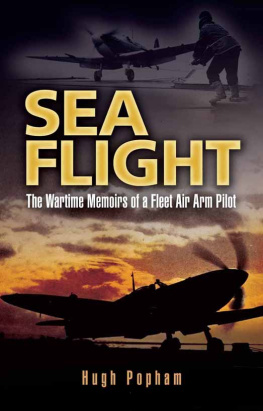
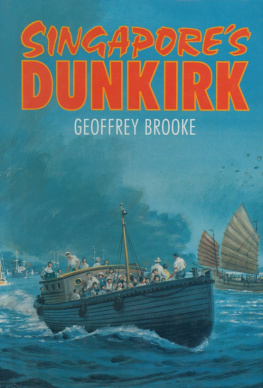
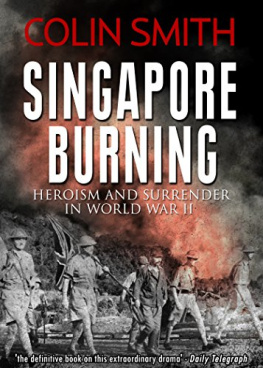
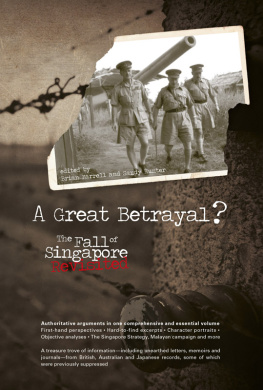
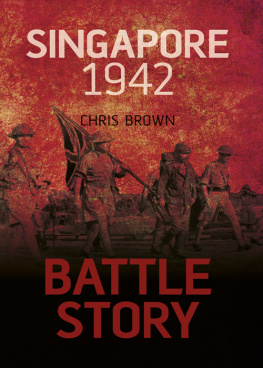
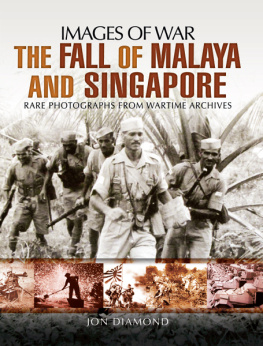
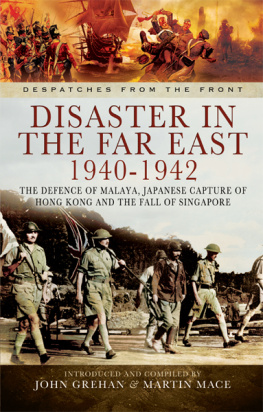
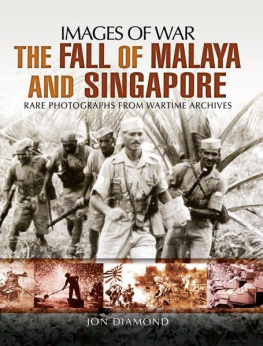
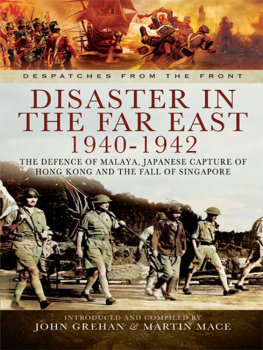



 Print editions meet the requirements of ANSI/NISO z39.48-1992
Print editions meet the requirements of ANSI/NISO z39.48-1992